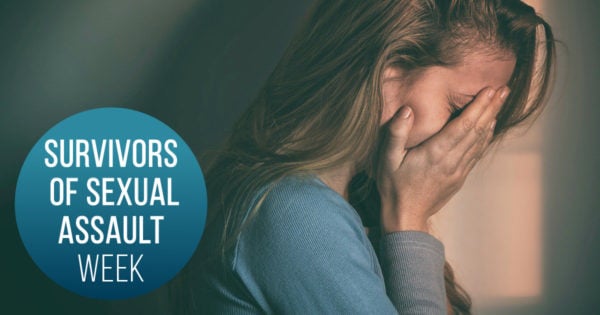If you or someone you know has experienced sexual assault, please seek help with a qualified counsellor or by calling 1800 RESPECT.
There are 60 counsellors on a 24/7 roster. They are hunched over phones and answering calls from women all around the country. There is no script to follow and no time restrictions to meet.
The phones don’t stop ringing and the counsellors never, ever tell the woman on the end of the phone what to do. They are providing support and guidance in a crisis.
It’s the hub of 1800 RESPECT and the NSW Rape Crisis and Sexual Assault hotline. The service will receive more than 60,000 calls this year.
“We know that almost every time we pick up the phone we’re talking to a victim of sexual assault,” Executive Officer of Rape and Domestic Violence Services Australia, the organisation running the counselling services, Karen Willis told Mamamia. “If the primary reason for her call isn’t sexual assault, it’s domestic violence. And, in cases of domestic violence, it’s likely she has been been forced into sex by her partner in the past.”
The 60,000 calls come from 28,000 individuals around the country.
“Many women call more than once,” Willis said.
But 28,000 is only a portion of the 100,000 women who are sexually assaulted in Australia every year.
Why are these women picking up the phone?
Victims are calling for help, but not from police.
“Around 20 per cent of the callers are ringing within the first seven days of being raped,” Willis said.



Top Comments
I was a victim of statutory rape and asked point blank multiple times, by counsellors, police and family, 'did you initiate it?'
I was 13, he was 26.
I felt like sh*t about it then and I feel like sh*t about it now. It was not my fault, but I dont talk about it because when I tell people the circumstances I am afraid they *will* think it's my fault, and that hurts. The culture of victim blaming is rife and even after my rapist was charged and jailed and now out, I am still left afraid of the victim blaming.
When people, even far-right women, don't see grabbing someone's pussy as sexual assault, who can women turn to?